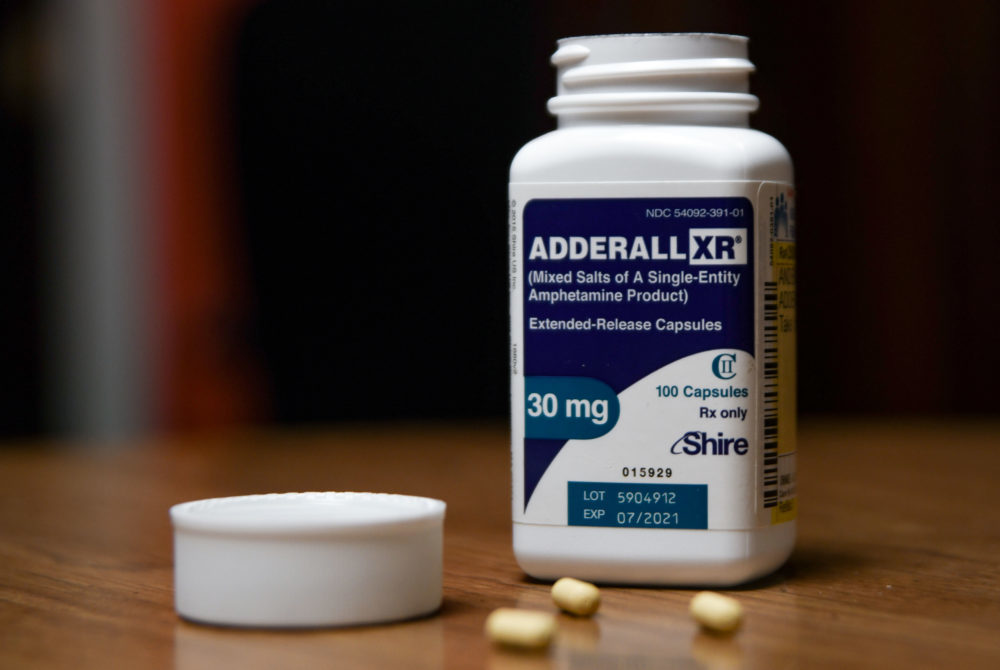Effects of Adderall on Healthy College Students without ADHD
If you have experienced high school or college life in the past 20 years like I have, it is very likely that you have heard of Adderall. The prescription drug used to treat people with the chronic disorder, Attention-deficit/hyperactivity disorder (ADHD), has also become the number one drug, other than caffeine, that teenagers and young adults turn to for improving their academic performance. Adderall and other ADHD medications have been the go-to drugs for improving peoples’ cognitive abilities such as memorization, learning, talking, and reading abilities. However, new research has found that ADHD medications actually do not have the same effects on healthy college students without ADHD.

Anderson, O. (2018). [Adderall prescription]. Retrieved from https://www.gwhatchet.com/2018/01/22/adderall-on-campus-students-turn-to-prescription-stimulant-when-work-mounts/
ADHD is a chronic disorder identified by persistent inattention, hyperactivity, and or impulsivity that affects approximately 3-10% of school-age children and adolescents. Various non-pharmacological treatment alternatives are available for ADHD; however, they are not as effective as using prescribed stimulant medication. Currently, the best methods to treat ADHD are through the use of prescribed stimulant drugs such as Adderall and lisdexamfetamine dimesylate. Although these prescription stimulants are helping reduce millions of users’ symptoms each year, the non-medical use of these drugs has increasingly become an issue in recent years.
This study which was conducted by Lisa Weyandt, a psychology professor at the University of Rhode Island, and her colleagues, was the first of its kind to explore cognitive effects in comparison with mood. One purpose of the pilot study was to explore the potential effects of Adderall on the cognitive performance of healthy college students without ADHD. In order to do this, two groups were involved in the study, students receiving Adderall and students receiving the placebo. The researchers then studied the effects of the medication without knowing who has taken the medication, to avoid any bias in the research. The secondary purpose of the study was to explore the associated effects of Adderall on autonomic activation, which refers to an increase in function of the autonomic nervous system which controls non-conscience bodily functions, such as breathing and estimate Adderall’s impact on the outcomes observed. The researchers hypothesized that the participants on Adderall would perform higher than the placebo test group.
The Pilot study was conducted through a double-blind procedure in which neither the college student participants nor the experimenters knew who was receiving the Adderall and placebo. This allowed the researchers to observe the effects of Adderall vs. the placebo. The participants were also observed during the peak period of the drug effect, which was between 90 and 210 minutes after the drug was ingested, in order to get the most transparent results. For each participant, six tasks were assigned and administered to test for various effects of Adderall.
In the results of the study, Adderall notably increased ratings of activated positive emotion and autonomic activity, such as heart rate, emotions, and blood pressure, compared to placebo. This was naturally predicted to occur because Adderall is identified as a stimulant drug which increases these activities similar to cocaine and methamphetamine, but not as intensive. More notably, Adderall’s effect on reading, accuracy, fluency, short-term memory and comprehension performance was not statistically significant. The primary finding was that Adderall enhanced attention skills while impairing working memory performance relative to placebo. While improving attention skills, Adderall on a college student without ADHD causes them to lose confidence in their abilities to problem solve, complete tasks, and interact with others.
Although the findings in this study were significant, there were many variables such as the detailed health of each participant and sample size which makes the results a little doubtful. Weyandt and her colleagues stress that more studies have to be completed with larger sample groups in order to accurately verify if prescription stimulants do in fact, increase cognition in college students without ADHD.
This research was conducted by a team lead by Lisa Weyandt at the University of Rhode Island.